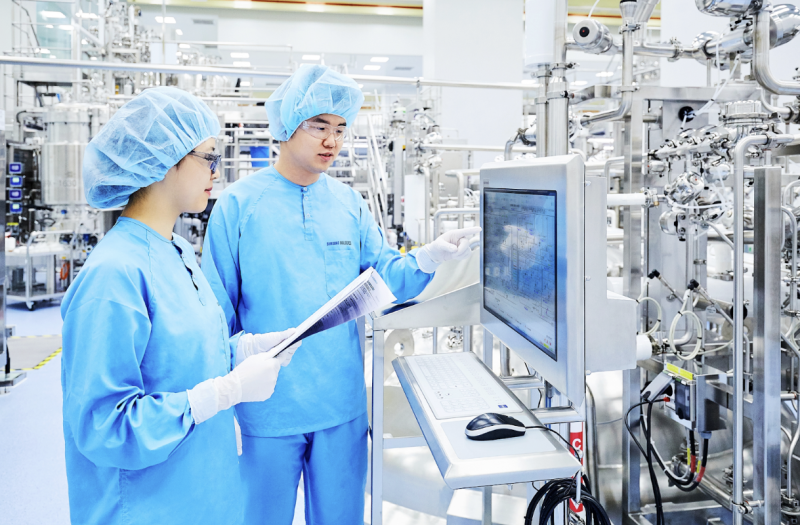Contract development and manufacturing organizations — companies that partner with drug developers to help bring medicines to market and scale manufacturing — played a key role in combating the COVID-19 pandemic. With additional service capabilities and manufacturing capacity, CDMOs were able to streamline mRNA vaccine production on a massive scale.
The speed at which those vaccines were developed and manufactured has increased expectations, said Samsung Biologics’ Jahoon Kang, vice president and head of antibody development, and Yeukyung Yoon, associate director in analytical CMC development, in a recent article.
“Conventionally, drug developers are under constant pressure to deliver safe, effective therapeutics for patients at an opportune time,” they wrote. “In the post-COVID-19 pandemic environment, it has become the norm to achieve key milestones in a faster and more efficient manner.”
And these expectations have spread from giant pharmaceutical companies like Pfizer and Merck to smaller biotech firms. There are a growing number of small enterprises developing innovative biopharmaceuticals in areas such as mRNA, monoclonal/bispecific antibodies, and antibody-drug conjugates. These companies are turning to CDMOs to help them realize their development and manufacturing goals with tailored solutions and scaling capabilities.
“In response to changing business dynamics, there is a growing need in drug development and manufacturing for robust, tailored strategies that allow small biotech companies to progress and scale their therapeutics without unexpected delays or errors,” said Kang and Yoon.
“These strategies must minimize risks and provide the right solutions that arise from new business priorities or demands.”
Antibody Manufacturing
Antibody drugs are complex proteins used by the immune system to identify and neutralize antigens. The development and manufacturing of these drugs require specialized processes, which CDMOs are increasingly handling. This includes both upstream processes, like cell line development and testing, and downstream processes like aseptic fill-finish services.
“For drug developers looking to outsource their novel antibody molecules, partnering as early as possible with a CDMO that understands the implications, such as target gene sequences when plodding through process pathways, is the key to success,” said Kang and Yoon.
They emphasized an integrated process that incorporates high-throughput screening of cell lines, identifying cells that are better able to produce the needed antibodies early on by screening a high volume of candidates quickly and efficiently.
“Generating high-yield cell lines by using compact, but advanced technologies — such as transposing and analytical methods — may preempt issues that could appear in subsequent development stages, including, but not limited to, the low efficacy and safety of therapeutics,” they said.
A CDMO Partnership Case Study: Samsung and Aronora
Samsung Biologics’ recent partnership with Aronora Inc., a clinical-stage biotechnology company, exemplifies how a CDMO can help a somewhat smaller company get its product to the finish line.
The goal of the project was to enhance the development of Aronora’s novel therapeutic antibody, Gruticibart. This monoclonal antibody is designed to treat and prevent thrombosis (blood clots) without increasing bleeding risks. Based in Portland, Oregon, Aronora sought a partner capable of developing high-titer, viable cell lines, crucial for the commercial viability of biopharmaceuticals.
The company chose Samsung Biologics based on the CDMO’s expertise in cell line development and its collaborative approach.
“Cell line development is the foundation for everything,” said Christina Lorentz, director of clinical operations at Aronora. “One of the best things about this collaboration has been Samsung’s experience going from cell line development all the way to commercialization. As a small company, we have really benefited and learned a lot about the entire process as opposed to just looking at it piece by piece.”
The cornerstone of successful drug development lies in acquiring a high-titer cell line. High titer indicates a concentrated presence of antibodies capable of neutralizing antigens or target viruses, enhancing the potential for commercialization. Before partnering with Samsung Biologics in 2022, Aronora’s project faced challenges due to a cell line with low titer.
Samsung Biologics’ intervention, particularly through its proprietary drug-development platform S-CHOice®, leveraged the use of methionine sulfoximine, which acts as a specific inhibitor of the enzyme glutamine synthetase. The enzyme plays a crucial role in the synthesis of glutamine, an amino acid vital for various cellular processes. This approach to cell line development ultimately increased the titer of Aronora’s cell line almost tenfold compared to its predecessor.
“If cell line development fails, then the whole program has a risk of failing,” said Lorentz. “So knowing our new cell line has a high titer means the program has regained significant momentum.”
Samsung Biologics’ partnership with Aronora exemplifies the critical role of CDMOs in biopharmaceutical development. These companies’ technical capabilities, coupled with a client-centric approach, can enable smaller enterprises like Aronora to overcome initial challenges and significantly progress in the development of a potentially transformative therapeutic antibody.










